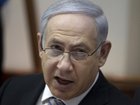The ferocious exchange of fire by Hezbollah and the Israeli military is raising fears of a regional war beyond the tense border.
The risks for Lebanon are far greater than in 2006, when a monthlong war with Israel ended in a draw. Lebanon has struggled with years of political and economic crises that left it indebted, without a stable electricity supply, a proper banking system and with rampant poverty.
 Full Story
Full Story
The United States helped track the barrage of rockets and drones launched by Hezbollah against Israel on Sunday, but was not involved in strikes in Lebanon or in shooting down incoming projectiles, a U.S. defense official said.
"The U.S. was not involved in Israel’s preemptive strikes last night. We did provide some ISR (intelligence, surveillance and reconnaissance) support in terms of tracking incoming Lebanese Hezbollah attacks, but did not conduct any kinetic operations as they were not required," the official said on condition of anonymity.
 Full Story
Full Story
The Israeli army said Hezbollah failed to strike a military intelligence base near Tel Aviv that the Lebanese armed group’s leader said was the target of a rocket and drone barrage on Sunday.
 Full Story
Full Story
Britain on Sunday called for restraint in the Middle East, after the largest clashes between Israel and Lebanon's Iran-backed Hezbollah since the start of the war in Gaza.
"Further escalation in the Middle East must be avoided at all costs," British Foreign Secretary David Lammy posted on X, following a call with Israel's minister of strategic affairs, Ron Dermer.
 Full Story
Full Story
Five-time former Lebanese Prime Minister Salim Hoss, who served during some of the most tumultuous years of his country's modern history, died Sunday at age 94, the current premier said.
Caretaker Prime Minister Najib Mikati described Hoss, who was also a former government minister and member of parliament, as the "conscience of Lebanon" in a statement announcing his death. He added that Hoss "passed away at the most difficult and delicate stage in which Lebanon needs its conscience."
 Full Story
Full Story
Danny Citrinowicz, an expert at Israel’s Institute for National Security Studies, said Hezbollah might be trying to “balance the equation without escalating into war” after its response against Israel on Sunday.
Each side hopes their narrative will be sufficient for them to declare victory and avoid a wider confrontation, he said.
 Full Story
Full Story
After an emergency government meeting on Sunday, Lebanon’s caretaker Economy Minister Amin Salam said officials were “feeling a bit more optimistic” about a de-escalation between Israel and Hezbollah.
“We feel more reassured since both sides confirmed that the expected operations ended,” he said, referring to Sunday morning's heavy exchange of hostilities between Israel and Hezbollah.
 Full Story
Full Story
Waking at dawn on Sunday to explosions and sirens, Abigail Levy checked the news and quickly understood there had been "an escalation" of hostilities between Israel and Hezbollah.
 Full Story
Full Story
Hezbollah chief Sayyed Hassan Nasrallah on Sunday announced that Hezbollah’s attack on Israel on Sunday morning had targeted an intelligence base just outside Tel Aviv and an air defense base in the heart of Israel.
“We targeted the Glilot military intelligence base near Tel Aviv, around 110 kilometers from Lebanon's border,” said Nasrallah in a speech dedicated to explaining Hezbollah’s response to the killing of its top military chief Fouad Shukur, who was assassinated in an airstrike on Beirut’s southern suburbs around a month ago.
 Full Story
Full Story
Israeli Prime Minister Benjamin Netanyahu warned that Sunday's strikes in Lebanon were "not the final word" in Israel's military campaign against Hezbollah.
 Full Story
Full Story



